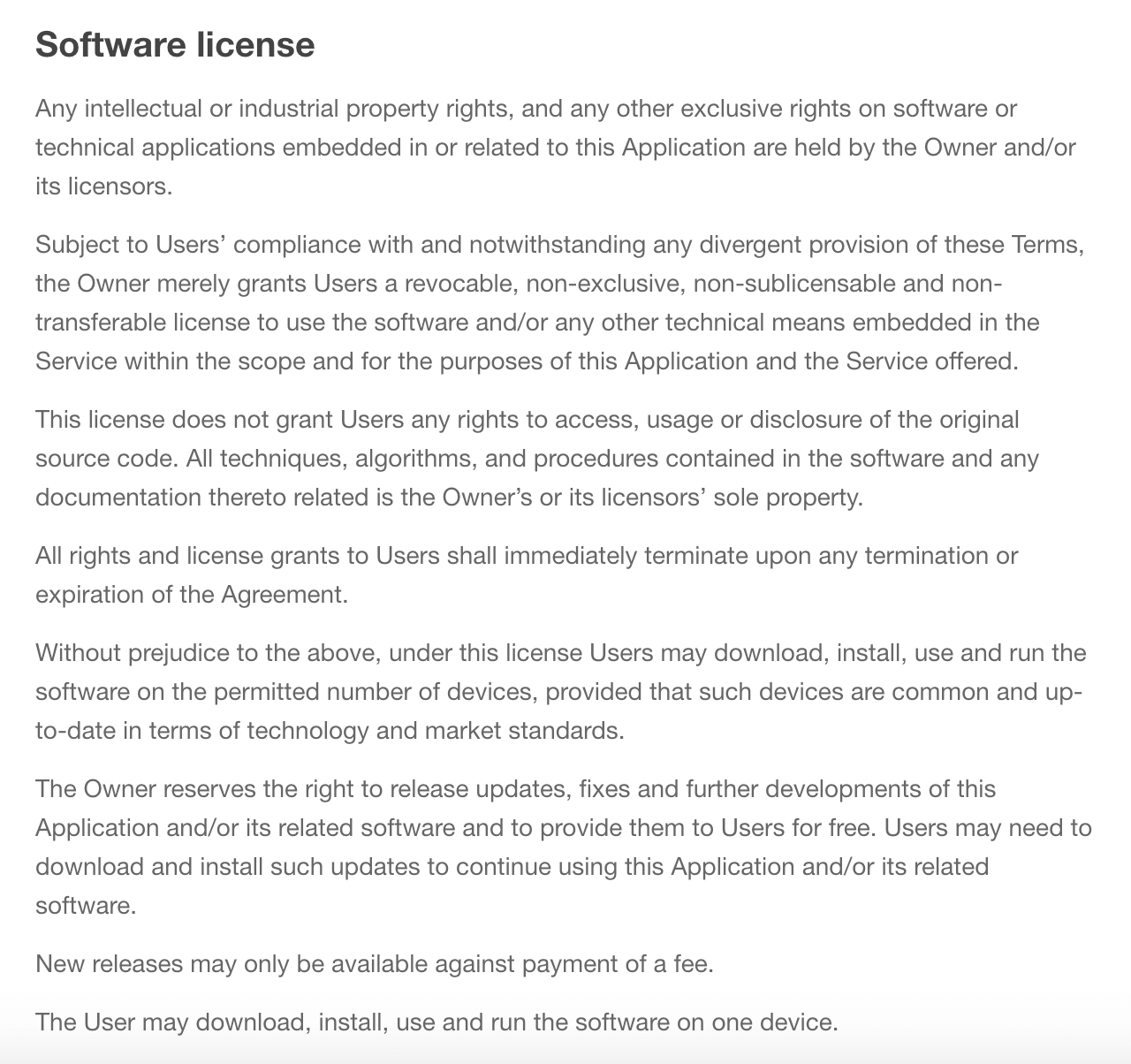Anleitungen
Was ist ein EULA und wie erstellt man es?
What’s the meaning of EULA? Is an EULA the same as Terms of Use or Terms of Service (ToS)? When is an EULA needed? How to generate one? In this post, we answer these questions and show how you can easily prepare an End User License Agreement for your business, website or app.
What is EULA?
EULA stands for an End User License Agreement (also called Software License Agreement (SLA), or Licensed Application End-User Agreement).
Generally speaking, an EULA is a legally binding agreement between the owner of a product (often software) and the end-user – more specifically a contract between the licensor of a product and the licensee.
Going into more details, it specifies the rights and restrictions that apply to the software, and it’s typically presented to users during the installation/set-up stage. Like other legal agreements, it is only valid if it’s actually agreed to.
When is an EULA needed?
End User License Agreements are important for protecting the rights of the business owner/licensor and critical for setting the rules of use and managing the expectations of the end-user.
Generally, the EULA will help you to set the conditions of your license agreement with the user – explain what they are and aren’t allowed to do with the software, the conditions under which their access might be limited or terminated, copyright provisions etc.
Some additional instances where an EULA might needed are where you:
- need to make legally required disclosures related to consumer rights (especially withdrawal and cancellation rights);
- have different user levels (eg. registered vs non-registered);
- your platform allows users to sell or trade with other users;
- facilitate or otherwise process payments and/or other sensitive user data; want to set the rules for user behavior and state grounds for termination of accounts;
- participate in affiliate programs;
- provide a software or service which can potentially cause harm if misused;
- would like to have some legally enforceable control over, and set rules about, how your website/app/product may be used.
Is an EULA the same as “Terms of Use” or “Terms of Service” (ToS)?
Yes, somewhat. Terms of Use (also called Terms and Conditions and Terms of Service) generally govern the relationship between a business, its’ services and its’ users/consumers – this broad scope can include everything from copyright and licensing to consumer rights, to return policies and setting governing law.
An End User License Agreement operates in a similar way, but focusses mostly on the licensing relationship. The titles “Terms and Conditions”, “Terms of Use” and “EULA” mean the same thing in relation to software and apps and are often used interchangeably.
What should be included in an EULA?
Although EULAs vary, common clauses for End User License Agreements are:
- definitions;
- a grant of license;
- limitations on use;
- a copyright notice;
- a limited warranty.
How do you write EULA?
When writing a basic End User License Agreement, be sure to at least:
- clearly identify yourself/your business;
- clear state the rules for user behaviour and access to your product/software;
- disclose the copyright/intellectual property license that applies (e.g. open source);
- include other details of the software license including conditions for termination;
- include any disclaimers and limitation of liability statements.
You can see how this all comes together in the EULA example text below.
End User License Agreement sample
Here’s a sample EULA template created with iubenda Terms and Conditions Generator:

Click on the button below to open the full agreement:
End User License AgreementAbout us
The solution to draft, update and maintain your Terms and Conditions. Optimised for eCommerce, marketplace, SaaS, apps & more.
